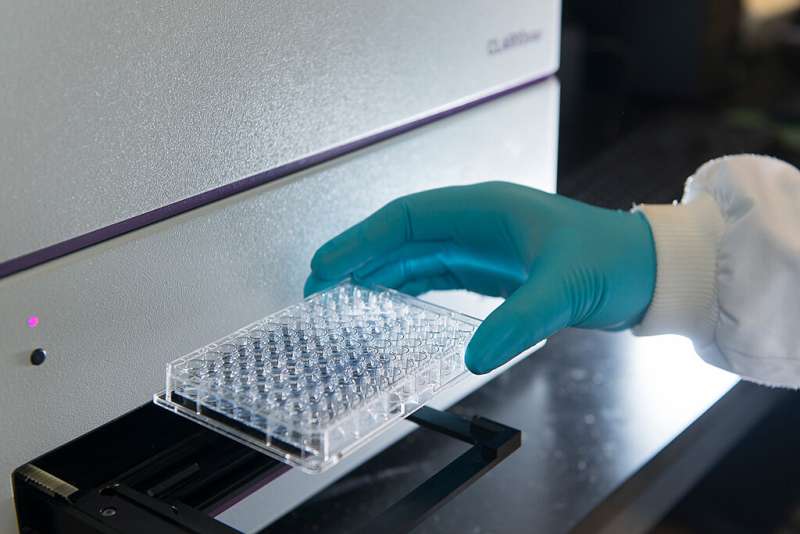New research validates molecular test that can accurately predict risk of breast cancer recurrence

New research further demonstrates that the OncoMasTR test can accurately identify the risk for disease recurrence in patients with a common type of breast cancer. This information can help clinicians and patients make more informed treatment decisions.
OncoMasTR is a 6-gene signature test that can predict the likelihood of breast cancer spreading to a distant site in the body and reappearing.
Each year, 2.2 million women are diagnosed with breast cancer globally. Eighty percent (80%) of breast cancer patients have early-stage, hormone receptor positive disease. The OncoMasTR test can help determine the risk profile of an individual patient in this group.
The research led by University College Dublin (UCD), the Royal College of Surgeons in Ireland (RCSI) and OncoMark Limited involved detailed molecular analysis of samples from 404 women diagnosed with breast cancer from across 11 hospitals in Ireland.
This research study looked at how well the OncoMasTR test performs in comparison to several risk assessment tools in routine clinical use. The risk factors used included the age of the patient, the size and grade of the tumor, as well as the commonly used molecular assay Oncotype Dx.
The findings show that OncoMasTR is the most accurate risk classifier for identifying patients with lower or higher risk for disease recurrence. It also added prognostic information to other risk tools.
Commenting on the findings, Professor William Gallagher, deputy director, Precision Oncology Ireland and Professor of Cancer Biology in UCD School of Biomolecular and Biomedical Science and Fellow, UCD Conway Institute who led the study said,
"This key clinical validation study showed that the OncoMasTR test has truly excellent performance in terms of predicting outcome of these patients, with improved performance versus the currently used approaches in the clinic. This may help clinicians to optimize treatment decisions."
Co-lead author, Professor Darran O'Connor, associate professor of molecular oncology, School of Pharmacy & Biomolecular Science, RCSI said "This important study is an excellent example of collaborative science, made possible by the support of Cancer Trials Ireland, eleven hospitals across the country and the close interaction of industry and academia to progress the development of next-generation diagnostics for patients with early-stage breast cancer."
The OncoMasTR test, which received the CE mark in 2018, is analytically robust and may provide a more economical solution for patient risk assessment, delivered in a local, hospital laboratory test setting. Local testing is important as it provides for a more rapid result being relayed to the treating clinician and patient and, in doing so, may relieve some of the anxiety associated with shared decision making.
More information: Seodhna M. Lynch et al, Prognostic value of the 6-gene OncoMasTR test in hormone receptor–positive HER2-negative early-stage breast cancer: Comparative analysis with standard clinicopathological factors, European Journal of Cancer (2021). DOI: 10.1016/j.ejca.2021.04.016

















